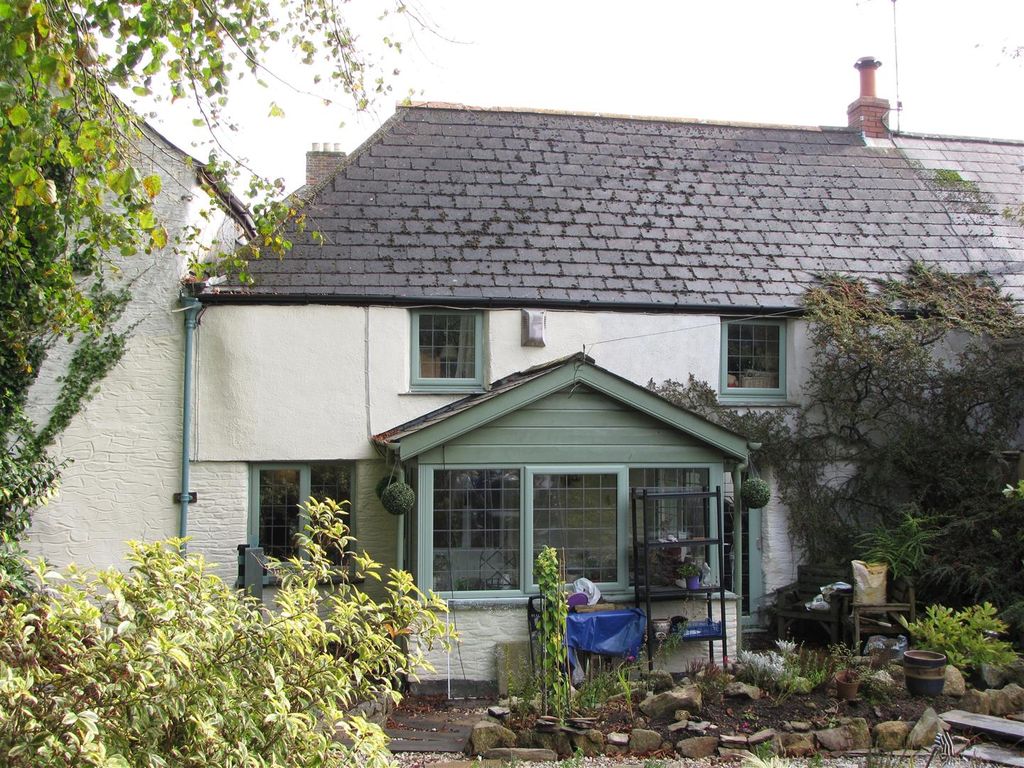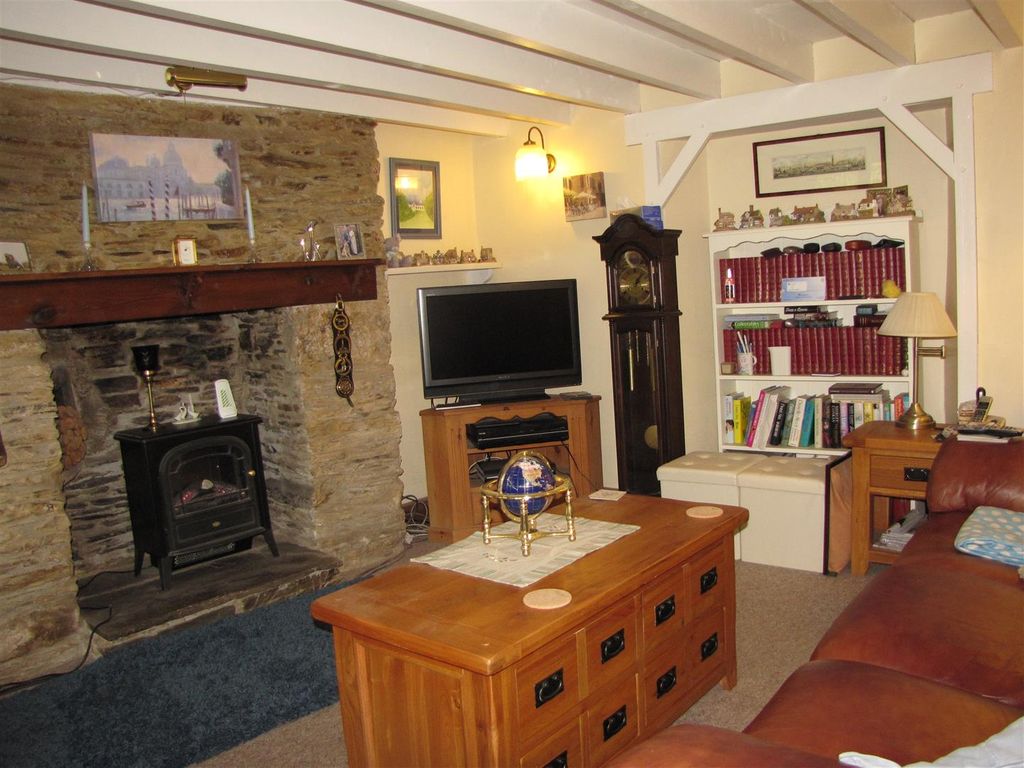My Memories of
Mirfield
Richard Teague (1926 - 2011)
This text is on pages 29-30 of "The Book of Grampound
with Creed" by Amy Bane and Mary Oliver (1998)
Mirfield
was
the home of my paternal grandparents, John Henry and
Elizabeth Teague.
Elizabeth died in 1914, before I was born, and John
Henry died in 1928, when I
was just two, so I cannot remember him.
On his
death,
Mirfield was left to his family of four sons and two
daughters. The holding, of
two meadows at Mirfield (known as Treglines Meadows),
and five or six at the
top of the village, was taken over by my father, Joseph
Stephens Teague, who
lived at the Post Office (now known as The Olde Post
Office), and Mirfield was
occupied by his two sisters, Helena Evangeline (Eva) and
Ethel Annie (Ethel).
In the
early to
mid '30s father gave up the holding. Aunty Ethel married
Thomas Kemp, a
carpenter, and went to live at the top of the village,
and Auntie Eva moved
into Treglines Cottage. Mirfield and the meadows were
let. It was during the
years 1928-1933? that I spent quite a lot of time at
Mirfield ‘helping ' my
father.
Treglines
Meadows
were used for pig rearing, egg production and for any
cows which were
calving and needed to be looked after more intensively.
The fields at the top
of the village fed cows, more pigs and fowls, and one or
two fields would be
'stopped up' for hay during the early summer. There were
two sheds at Mirfield
which were used as cow houses although one of them had a
stall for 'Fly', the
pony. The cows were driven up and down through the
village which was no problem
in those days - there was much less traffic sixty and
more years ago! There
were also pig sties, a traphouse and a hay shed in the
mowhay and another pig
sty/cattle shed in the field. Water for the stock at the
top of the village
came from the roofs of the buildings into a concrete
tank. During dry spells
water had to be carted up from Mirfield by means of a
large wooden barrel in a
cart pulled by Fly. This was also the means of disposing
of the heap of manure
from Mirfield yard which was then spread (by hand) over
the fields.
My
aunts' job was
to put the milk to stand in enamel bowls, to allow the
'ream' In rise to the
surface, and then the milk would be heated over pans of
water on the kitchen range
to allow the ‘ream’ to thicken into real Cornish Cream.
The skimmed milk would
then be used for stock feed (calves, piglets etc.) or
sold cheaply to poorer
inhabitants of the village. They were also responsible
for feeding the poultry,
picking up eggs, butter making and sometimes would do
some of the milking as
well, and, of course they acted as shop-keepers for the
dairy produce sold from
the house. Sometimes I would sleep at my aunt's, either
at Mirfield or later at
Treglines Cottage. This was a real treat as she had very
soft feather
mattresses and eiderdowns and when one got into bed, one
was almost completely
enveloped in feather-filled bedding - very, very warm!
The lane from the main
road to Treglines Meadows passed the Blacksmith's Shop
worked by Frank Miners
and his son Stuart. This was another place where a boy
could spend many hours watching
the various bits of farm machinery being made or
repaired, and horses being
shod. If they were not too busy I might also be allowed
to turn the bellows and
watch the fire come alive to soften the iron to be
worked.
Signs
in, or
attached to the outside of Mr. Miners' house declared
him to be an official agent
of (one or both - I cannot quite remember) the C.T.C.
Cyclists Touring Club and
the N.C.U. National Cycling Union. Some of the spares
and tools for this part
of their business were kept in a store in the north end
of the smithy where, I
understand, the tenants of Trewithen Estate properties
at one time, paid their
dues to the Trewithen agent. Mr. and Mrs. Miners lived
in the house below The
Dolphin, now part demolished and part incorporated into
The Dolphin. On the
opposite side of the lane to the Blacksmith's Shop was
Mr Miners' garden. At
the end of the garden nearest to the meadow, was a
flight of steps leading to
an elevated path where there was a clothes-line where
Mrs Miners dried her
washing. As the traffic was so light, crossing the road
with a basket of wet
washing was no problem!
When my
father gave
up the holding, my close association with Mirfield
ended, that is - until I bought
it and moved in, in 1953.
 |
 |